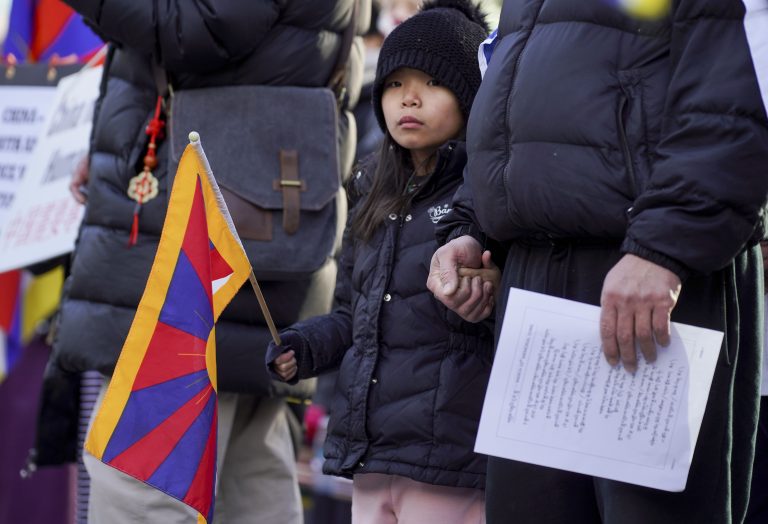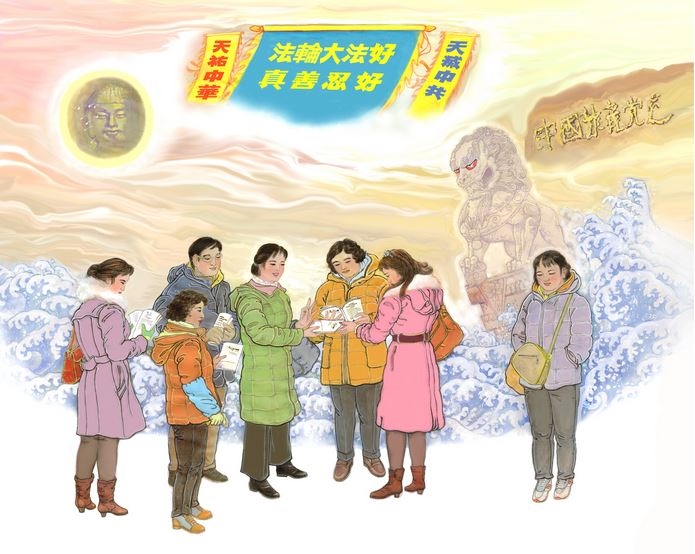CALGARY, Alberta — Tenzin Tsepel’s dearest dream is to see the Potala Palace with her own eyes. She enjoys watching YouTube videos of tourists visiting the massive fortress in Lhasa, the Tibetan capital.
She grew up in southern India, like thousands of Tibetans who fled their homeland after it was occupied by Communist China in 1950. Her grandparents followed the Dalai Lama on foot across the Himalayas, escaping persecution after the Tibetan uprising of March 10, 1959.
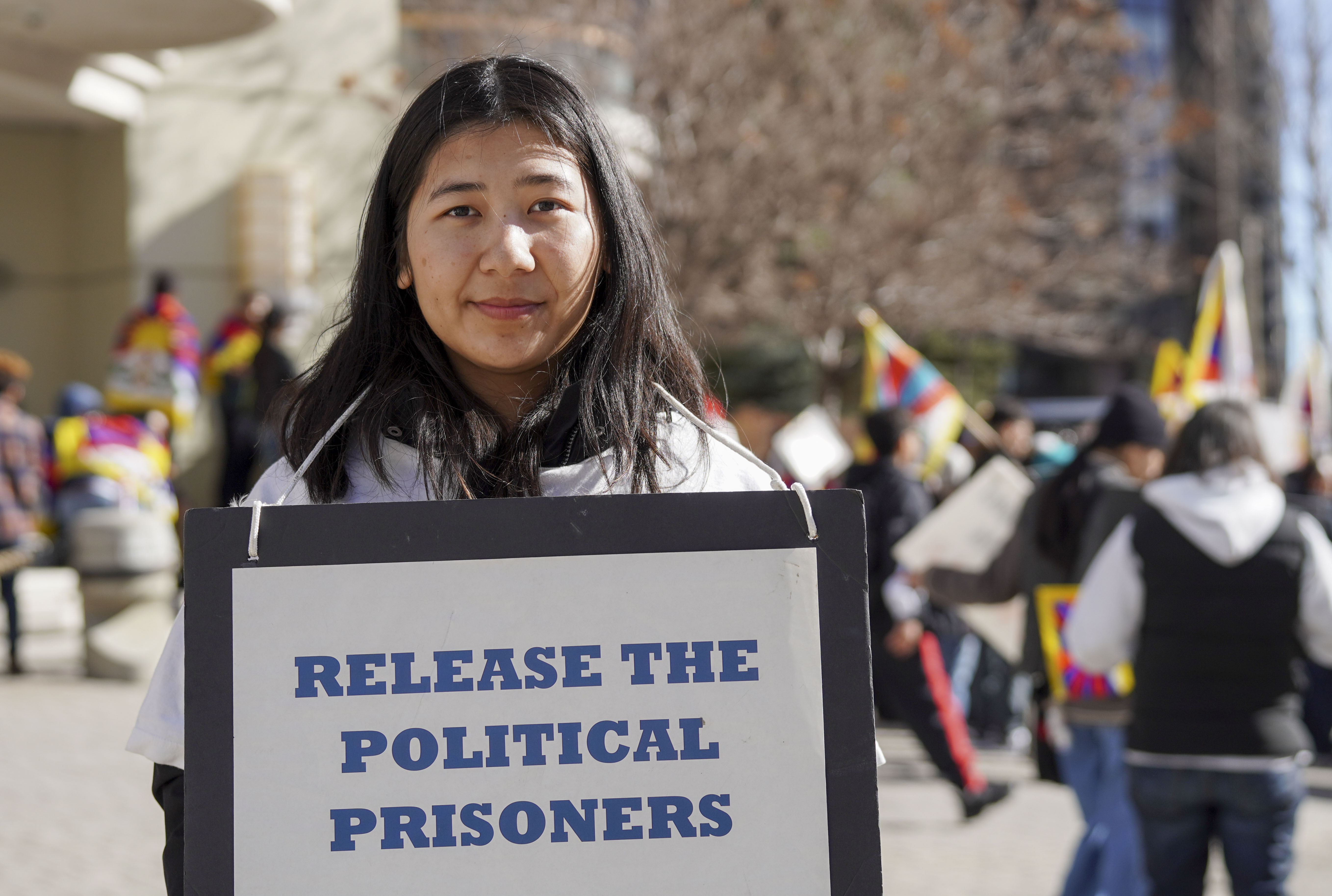
“To me, [Tibet] feels like home. But at the same time, I feel like it’s a home that was stolen from me, and I was raised mountains away from my homeland,” Tsepel said.
On March 10, 2024, in an annual event followed by Tibetans worldwide, Tsepel marched with other members of the community in Calgary to commemorate the 65th Tibetan National Uprising Day.
As customary, they held a two-hour static protest in front of the People’s Republic of China (PRC) Consulate to denounce the CCP’s human rights abuses.
Success
You are now signed up for our newsletter
Success
Check your email to complete sign up
On the same day, Tibetans in Toronto joined with supporters for a protest rally that saw 1,900 participants, including members of the Chinese democracy movement, gather before the city’s PRC consulate.
Sheng Xue, vice chairperson of the Federation for a Democratic China, gave a speech at the Toronto event praising the Tibetans’ continued resistance to the CCP and urged others to help end communist tyranny in China.
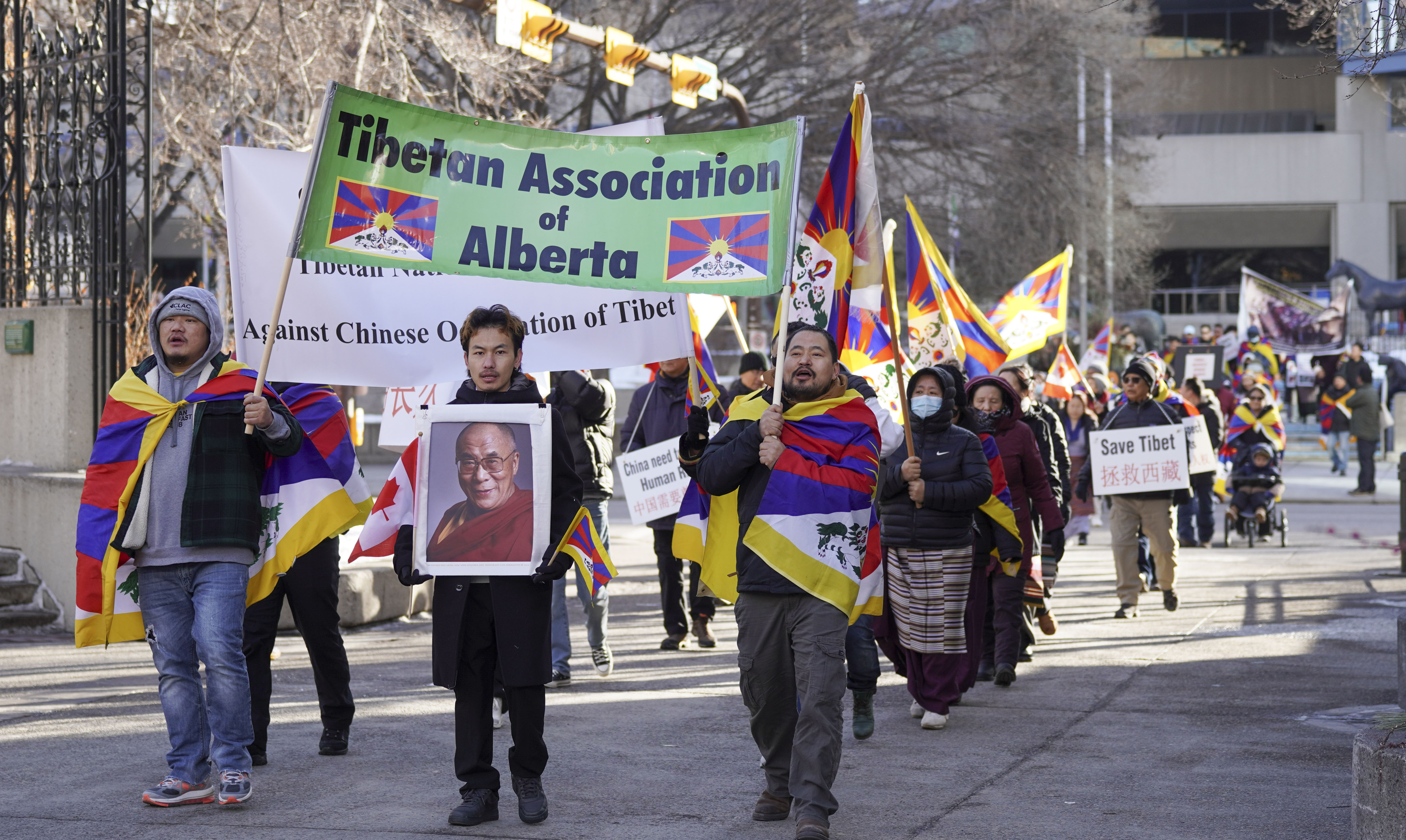
“China has constructed dams along [Tibet’s major] rivers, not only harming aquatic life, but also destroying and flooding local villages and displacing Tibetans,” Tsepel said.
She added that the regime “has also made efforts to forcibly separate Tibetan children, over one million – that is three quarters of the Tibetan children population in Tibet – to place [them] in colonial boarding schools.”
Tsepel compared the CCP’s boarding schools in Tibet with the Indian residential schools in Canada’s history.
“These children are now not only indoctrinated, but they are forbidden from speaking our own language, from practicing our culture and religion,” she said. “You can imagine the profound intergenerational trauma.”
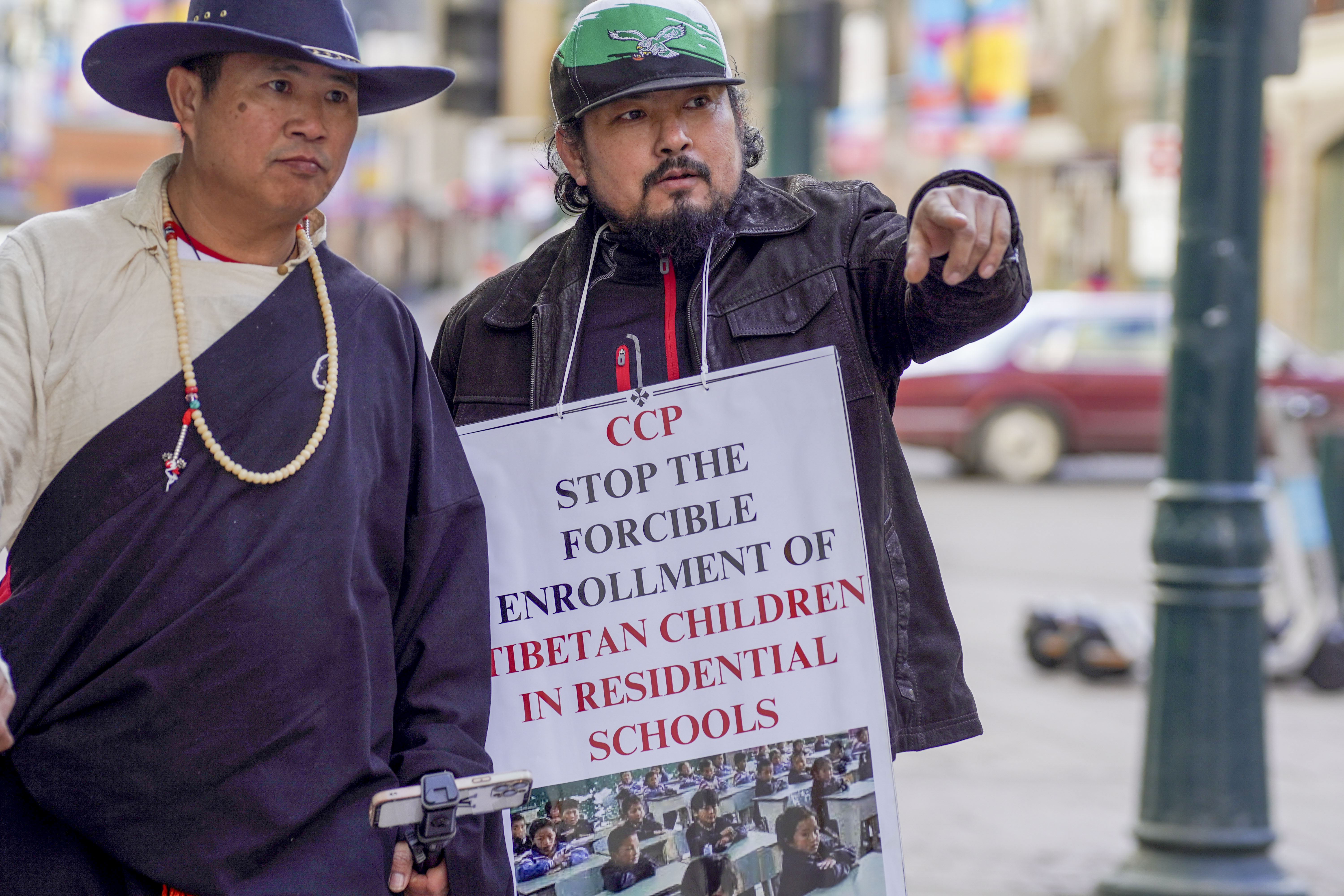
READ ALSO:
- Over 1,000 Tibetans Arrested in Southwest China as Dam Project Sparks Major Protests, Threatens Local Heritage
- ‘Teach Tibetans a Lesson’: Monks Forced to Watch as Chinese Regime Destroys 99-Foot-Tall Buddha Statue
- Retired Chinese Doctor Recounts Live Organ Harvesting in Military Hospital: Exclusive Interview
During the 20th century, Tibet exercised independent rule despite being a sovereign part of the Chinese republic. In 1949, the legal Chinese government was toppled by communist armies, who established a repressive totalitarian regime.
According to the U.S. Department of State, human rights abuses in Tibet under communist rule include unlawful or arbitrary killings and arrests, disappearances, torture, and cases of cruel, inhuman, and degrading treatment, such as transformation through re-education and rape of Buddhist girls and nuns.
The CCP claims that its occupation has brought Tibet prosperity and emancipation, calling the region’s Buddhist culture a “feudal serfdom” that was transformed into a progressive and civilized “socialist system,” as mentioned in an article by state-run paper the Global Times.
In an emailed response to a Vision Times reporter, the PRC Consulate in Calgary did not directly comment on the protest, but stressed that “Xizang has been an integral part of Chinese territory since ancient times,” using the Mandarin Chinese name for Tibet. It also appended the PRC’s white papers on the subject in its response.
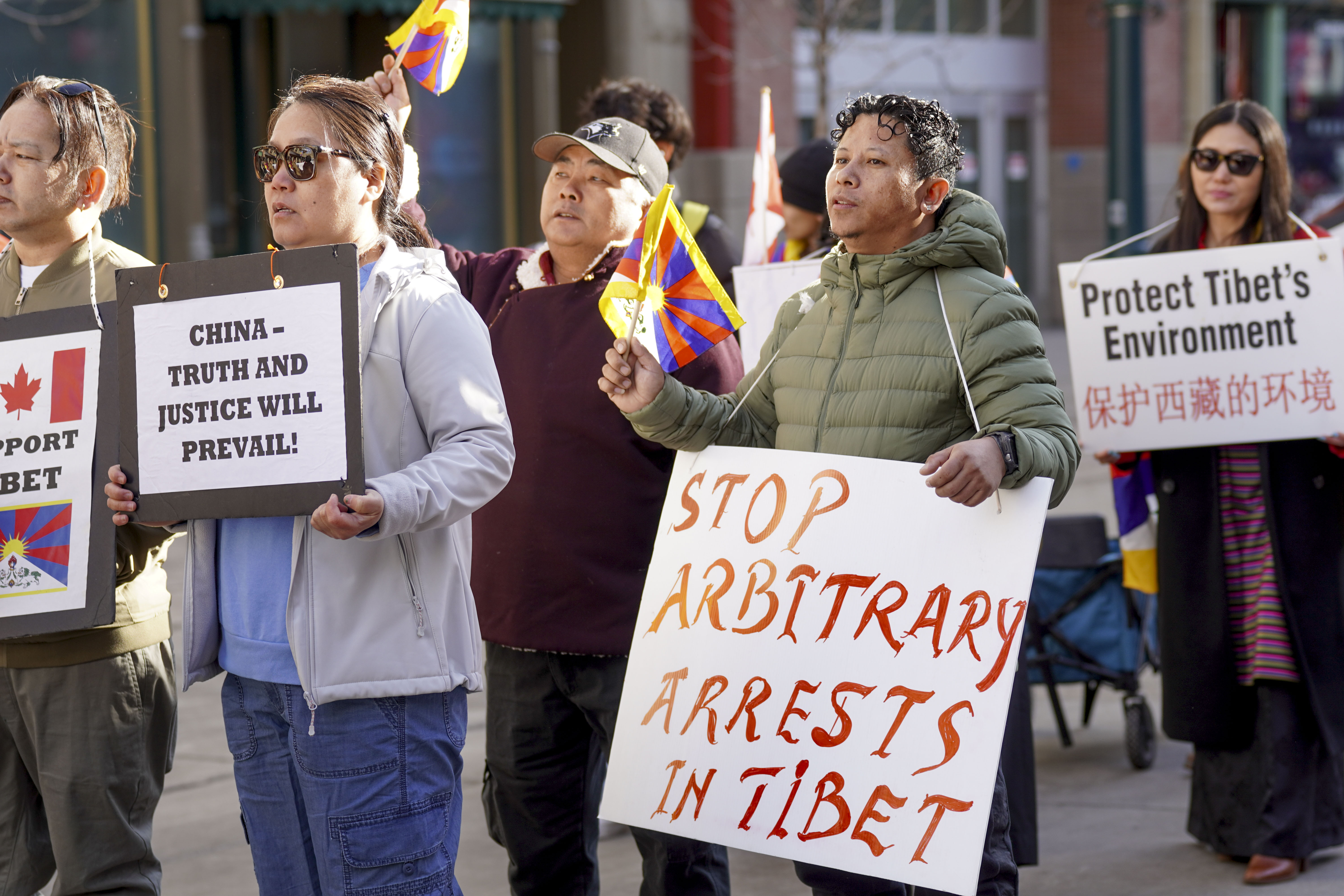
- Chinese Persecution Survivor Warns of Transnational Repression in the West
- China Censors NBA Game Following Player’s Comments on Tibet
- The Latest Victims of China’s Surveillance State
- ‘I learned that the Tiananmen Square massacre really happened’: Chinese Quit the Communist Party
According to Tibetan estimates, 1.2 million Tibetans have died as a result of the Communist Party’s tyranny, including at least 85,000 who perished during and following the 1959 uprising that led to the Dalai Lama’s flight. A report by the UN Refugee Agency found that Chinese regime authorities burned sacred Tibetan texts and destroyed more than 6,000 monasteries in Tibet during the Cultural Revolution.
The consulate’s response ignored the human rights abuses ongoing in Tibet, and repeated the Party’s claims of having led the region down a “bright road of unity, progress and development.”
Apart from Tibetans and Tibetan Buddhism, the CCP has endeavored to destroy or subvert all religious faith in China. Independent Christians, Muslims, and practitioners of the Falun Gong spiritual practice have been subject to decades of harsh persecution ranging from fines to being harvested alive for their organs.
“In recent years, the Tibetan issue has almost been cast aside,” said Dorjee Parsur, co-president of Students for a Free Tibet at the University of Calgary. “Since we march every year, we want to make sure that people remember that major events are still occurring in Tibet.”
Dorjee, born in Calgary, says he’s proud of his culture and identity, and stressed the importance of Buddhism for Tibetan culture.
“I think that it [Buddhism] makes me a better person in general,” he said. “We believe that the merits of our good actions will result in good favor, and I believe that good will eventually triumph over evil.”
As for Tenzin, she dreams of visiting the town where her grandparents were born and raised.
“I do want to be able to go to my country, see the landscape, see the mountains and [feel] the air,” she said. “I feel like it’ll bring me to tears, really.”



